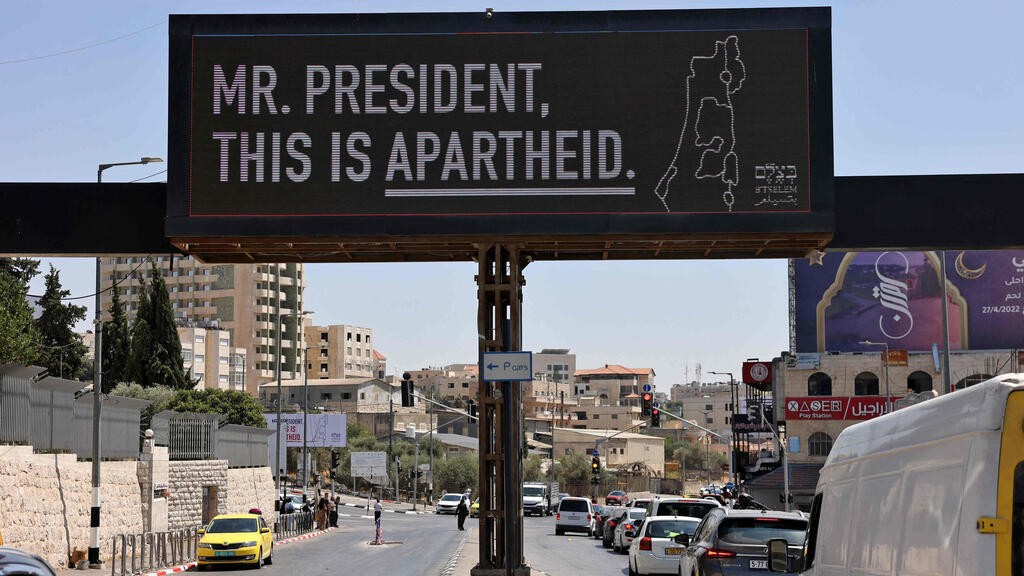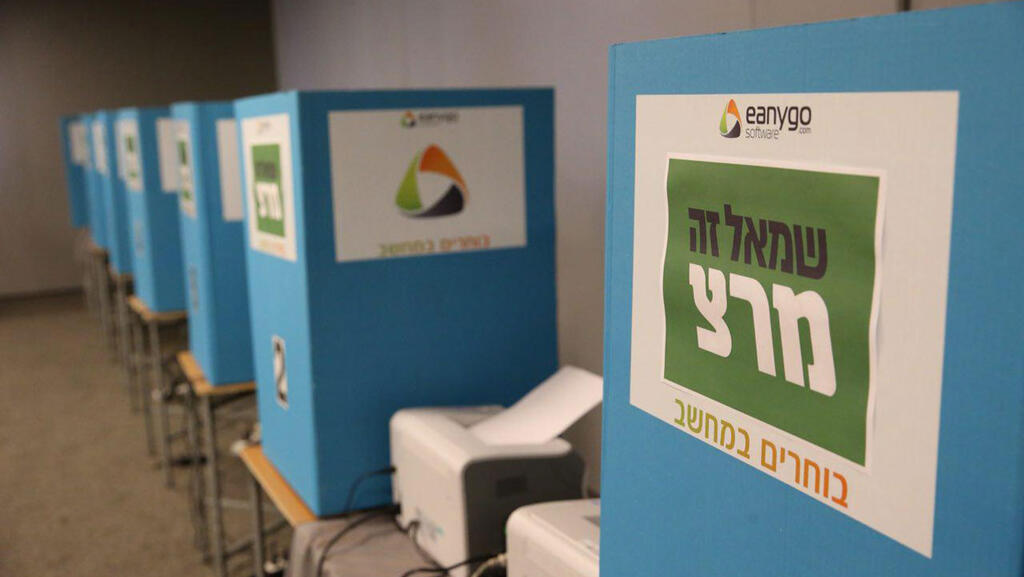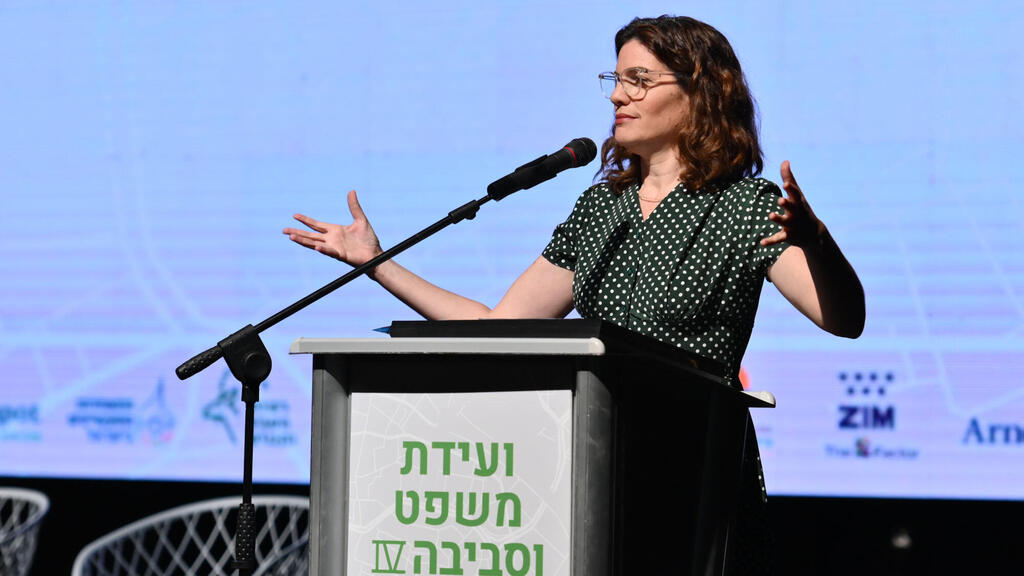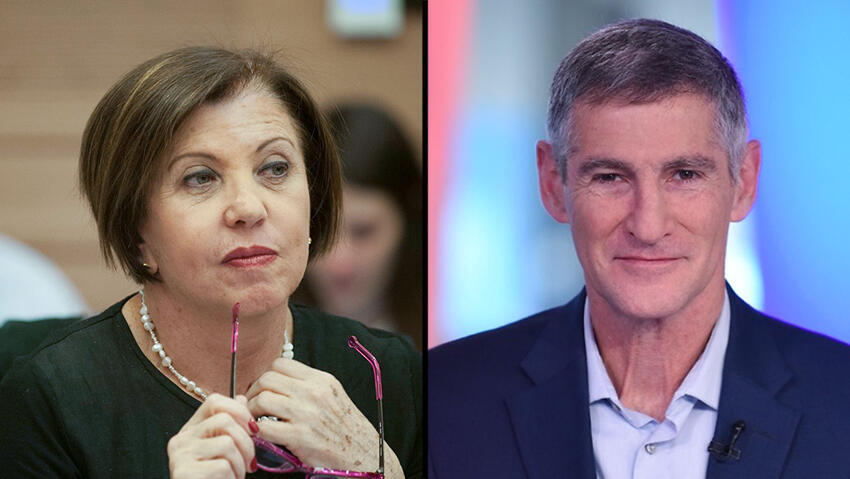Ahead of U.S. President Joe Biden visit to Israel, the B'Tselem human rights organization put up billboards in Bethlehem and Ramallah in the West Bank, which read, “Mr. President, this is apartheid.”
Biden never made it to Ramallah and did not appear to have noticed the signs when he was in Bethlehem. One thing is clear, however, if we wish to know why the left-wing Meretz party has barely been making it past the electoral threshold in recent elections, it's because the faction's identity has become mixed up with far-left groups and their ideology.
Not all Meretz members are pleased with the diminishing influence of Zionist traditions on the party, but it seems to late to turn back now.
The Meretz of today differs from the one that stood at the helm of the struggle for peace between Israelis and Palestinians. The party was part of the government that signed the Oslo Accords, as well as the one which participated in the Taba Summit (talks between Israel and the Palestinian Authority, held from 21 to 27 January 2001 in the Sinai).
It was the party with members who helped draft the Geneva Accord, which tried to present a peace alternative based not only on two states, but on two states for two nations. “This accord represents the commitment of the Jewish people to the state and the right of the Palestinian people to have a state.”
The accord was a major achievement, since the Palestinian establishment has always opposed Jewish people's right to self-determination. Should a peace agreement be signed one day, it will be based more around the Geneva Accords than on any other initiative for peace.
Yossi Sarid headed Meretz at that time and all the way until 2006. When he left, the party has undergone a major ideological change, along with the entire political Left in Israel. From fighting for peace to putting up signs that accuse Israel of being an apartheid state.
Whoever backs putting Israelis on trial in the International Court of Justice, whoever goes to college campuses abroad and presents Israel as an illegitimate state isn’t fighting for peace. Whoever is doing that is fighting against Israel and its right to exist.
Meretz is the Israeli Left, and the Israeli Left is Meretz. Yes, there are some on the Left who declare themselves as anti-Zionists, and vote for the predominantly-Arab Joint List. There are also those on the Left who vote for the Labor Party, which appears hellbent on becoming just as out-of-touch as Meretz.
Still, Meretz is the party of the Left, it just isn’t clear what kind of Left we are talking about. At the moment, Meretz appears to be split between the one that support Zionist traditions and the one siding with groups like B'Tselem.
The party used to have people like Haim Oron and Ran Cohen,who were exemplary Zionists. Tamar Zandberg, who this week announced her retirement from politics, and Ori Zacky, also belong in the Zionist camp. But their influence is diminishing. The need to stand by far-right organizations is dragging Meretz down in the public eyes and opinion polls.
To make matters worse, Zehava Galon, the founding executive director of B'Tselem, and Meretz MK Yair Golan announced their intention to run in the party primaries ahead of the November 1 elections.
It would be unfair to imply that Galon holds the same views as current B'Tselem Direcotr Hagai El-Ad, who turned the organization's work into a demonization campaign against Israel. Still, she is unlikely to stop the party’s plunge into the far-left abyss.
Golan, however, leans more center-left compared to Galon. He even went against “Breaking the Silence," one of the main organizations leading anti-Israel campaigns. At the same time, Golan has in the past made statements that make even Galon seem tame.
It’s tragic since the country needs a social and political Left to present solutions similar to the one presented in the Geneva Accord. Meretz, however, is heading in another direction. Israel needs a Zionist left-wing. Meretz insists on being something else.





